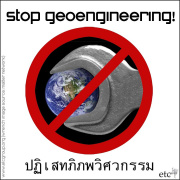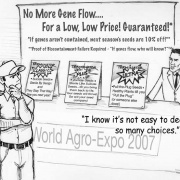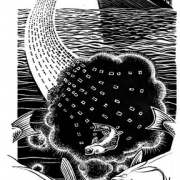Carbón vegetal (“biochar”) no detendrá el cambio climático
Enviado por ETC Staff el
Una declaración internacional fue lanzada el 6 de abril 2009 por 147 organizaciones de 44 países oponiéndose a la creciente tendencia y apoyo político que se está dando al biochar. Los grupos firmantes de la declaración “se oponen decididamente a la inclusión de los suelos en el comercio de carbono y a mecanismos de compensación, incluyendo el Mecanismo de Desarrollo Limpio». Los grupos afirman además, que «La propuesta del biochar no toma en cuenta las verdaderas causas en las que radica el cambio climático.





